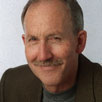On a frigid New Year’s Eve, more than a thousand people were jammed into the Memorial Union at Iowa State University. The candidate for president was more than an hour late, but no one seemed to mind. When Barack Obama finally took the stage at 9:40 p.m., the faithful applauded and cheered. “In Iowa,” I wrote on my blog later that night, “he’s the closest thing to a rock star.”
Obama began by announcing that the morning papers would carry the results of the latest Des Moines Register Poll. Four years removed from the Illinois state legislature, the young African-American with the unusual name was winning Iowa, leading a pack of more experienced Democratic candidates by seven points.
No one knew it then, but this was the moment in which the 2008 presidential election was turned upside-down.
Three days later, Obama would win the Iowa Caucuses, changing the face of American politics and blowing away the presumption that New York Sen. Hillary Cliinton would be the Democratic nominee for president.
We went to Iowa on the spur of the moment. At dinner, someone said, “Wouldn’t it be fun to be there?” In those three days, we saw, up close, five candidates for president – Democrats Obama, Clinton and John Edwards, and Republicans Mike Huckabee and Mitt Romney.
But even then it was obvious that Obama was generating crowds and energy that the others couldn’t match. It was no less obvious that he had the best organized and most disciplined campaign.
On the last night, we watched the Democratic and Republican caucuses at Des Moines’ Theodore Roosevelt High School and then drove downtown to hear Obama’s victory speech. “He may yet stumble,” I blogged later that night, “but this guy has star power, he’s a confident speaker, and he has found a way to reach out to young and independent voters who are sick of the cynicism of the old politics. If those independent voters continue to turn out, he will be a formidable opponent for the Democrats who remain in the race.”
In the coming months, we would visit other states – Texas, Virginia, New York, Nevada, Colorado and New Mexico – and see other signposts of this historic year.
I won’t forget the African-American woman in San Antonio who held her son high in the air – so that he could see the man who would become the 44th president of the United States.
But now what? No one doubts that the inauguration in three weeks will generate new waves of enthusiasm. No one doubts that Obama has assembled a team of advisors who are smart and experienced.
But after the cheering stops, there comes the recognition that the country is in a world of trouble, and it isn’t difficult to imagine how Obama’s presidency could collapse under the weight of it all.
The United States is engaged in wars in Iraq and Afghanistan, while trying to stave off religious and ethnic violence, terrorist attacks, wider wars and the spread of weapons of mass destruction.
Here at home, the nation is trying to overcome the worst economic conditions in 70 years. The country has watched while most of its manufacturing base eroded. The country is mired in debt, and it is faced with the prospect of more borrowing to get the economy moving again.
And Obama must try to lead a nation poisoned by a generation of bitter partisanship. To do so, he will have to endure assaults from both the right and left. When there are so many people practicing the politics of resentment, how does he persuade the country to accept the need to sacrifice for the common good?
Obama seems to understand that this last obstacle may be the most difficult to overcome. From his first days as a candidate, he has asked Americans to start thinking of themselves as Americans again.
This is not some Pollyanna patriotism in which people check their beliefs at the door. Politics will still be politics. Interest groups will still pursue their selfish ambitions. Folks who disagree about the nature of government will continue to disagree. Despite what you may have heard, we will still be red states and blue states
But at some basic level, Americans will have to recognize that their common success will depend on their tolerance for people with different views.
And so we come now to a quieter and simpler year, a time to take stock of where we are and where we want to be. If we are thoughtful in this first week of 2009, it is only because we have so much to be thoughtful about.
In November, the economist Chris Thornberg told local business leaders, “Americans have just woken up from 12 years of partying with the mother of all headaches.”
But it’s not just about money, is it?
At some point, we misplaced our common sense.
And common sense tell us that if we want to make the world safer, if we want to make our economy stronger, if we want our country to be more fair and humane, it all begins with a willingness to move beyond the cynicism and dogma. We are all in this mess together, and we won’t get out of it without focusing on our common interests and our common responsibilities.
As citizens, it could be our New Year’s gift to ourselves.

 Pete Golis is a columnist for The Press Democrat and a longtime resident of Sonoma County.
Pete Golis is a columnist for The Press Democrat and a longtime resident of Sonoma County.